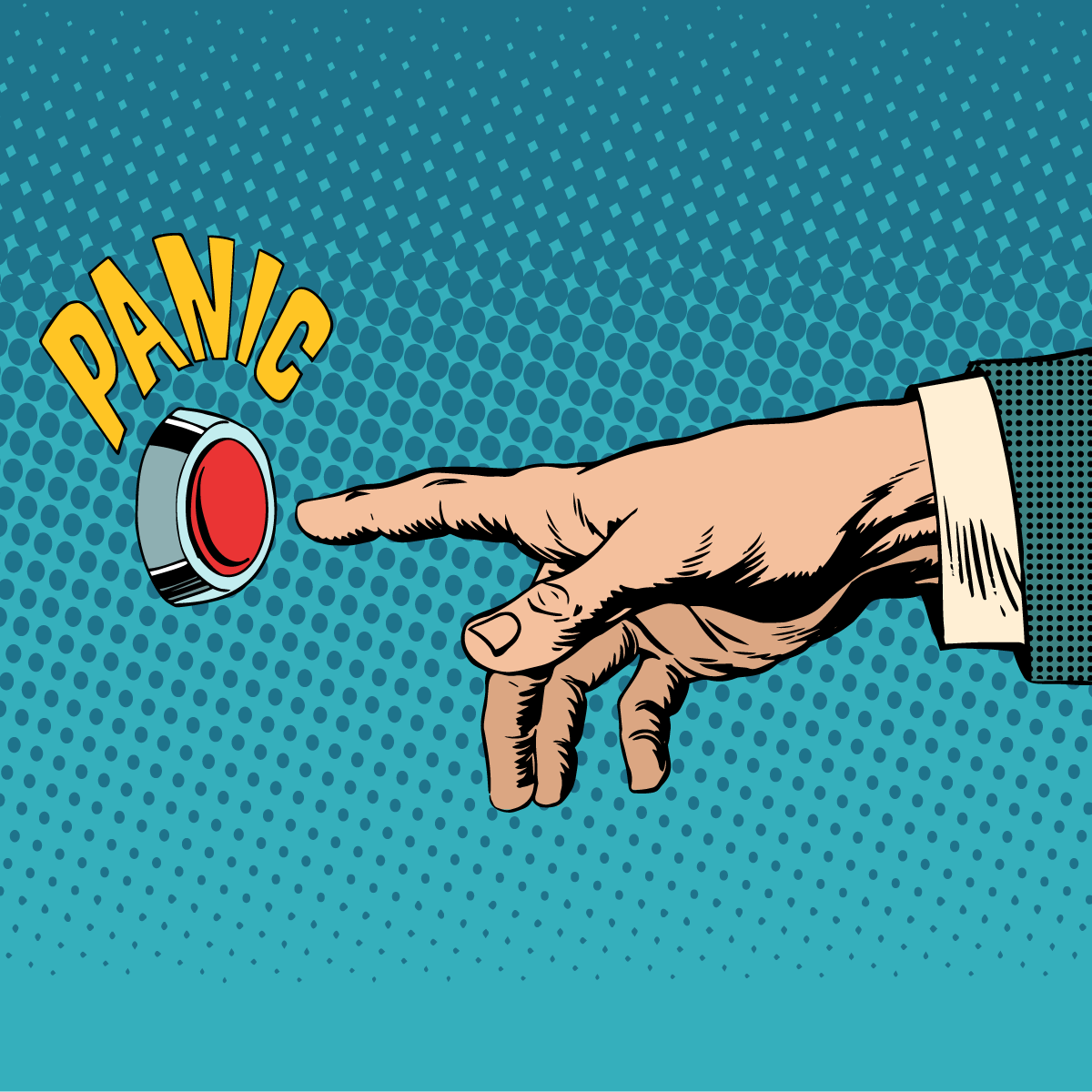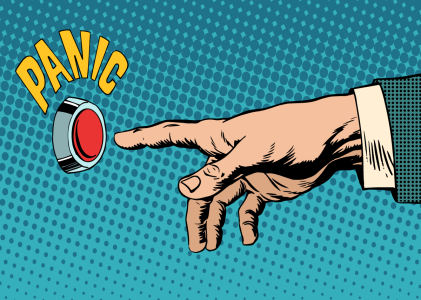You might feel like you’re dying, but a panic attack won’t actually hurt you. Here’s what to do if you have one.
What is a panic attack, really?
A panic attack is a normal physical reaction that happens out of context. Basically, you perceive a trigger (whether you recognize it or not) that launches your body into fight-or-flight mode. Your body responds as if your life were threatened when, really, there is no immediate danger.

Because you don’t see any real danger around you, your mind searches for an explanation. You might misinterpret your physical symptoms as being dangerous, in and of themselves. You might even rush to the Emergency Room, thinking it’s a heart attack.
Fortunately, you can prevent a panic attack from escalating to a fever pitch by understanding that your physical symptoms aren’t dangerous and by responding to your symptoms gently and logically.
What are the symptoms of a panic attack?
Panic attacks often come on suddenly and for no apparent reason. Symptoms escalate quickly (within 10 minutes or so) and then subside.
While people experience panic attacks differently, some common symptoms include:
- A sudden fear that you’re dying
- A sense of impending danger or doom
- Your heart pounds or races
- Your chest hurts
- You feel like someone is squeezing your throat
- You feel dizzy, weak or unsteady
- Chills or heat sensations
- Nausea or stomach cramps
Panic Attack Myths
Understanding the truth about panic attacks can help you de-escalate symptoms when one strikes.
A panic attack CANNOT:
- Cause a heart attack. There’s no connection between panic attacks and heart attacks [1]. Panic attacks are frightening but won’t damage your heart.
If your heart begins to race, just allow it to do so. Trust that it won’t harm you and that your heart will calm down eventually.
- Make you stop breathing or suffocate. Your brain has a built-in mechanism to force you to breathe if you’re not getting enough oxygen. These sensations are uncomfortable but not dangerous.
- Cause you to faint. You might feel lightheaded if you’re breathing rapidly. However, since your heart is pumping harder and increasing your circulation, you’re very unlikely to faint.
Breathe slowly and regularly through your abdomen to ground yourself.
- Make you lose your balance. Tension might affect your inner ear, which regulates your balance. You might feel unsteady for a few minutes, but this sensation will pass.
- Cause you to “go crazy”. When you breathe rapidly, you can reduce blood flow to your brain. This isn’t dangerous but can cause you to feel disoriented or like everything is unreal. It’s common to fear going crazy, but people don’t actually lose their minds in a sudden or spontaneous way.
Remind yourself that these sensations are temporary and have nothing to do with “going crazy.”
- Cause you to lose control of yourself. You may feel an intense desire to run away due to your body’s stress response, but you won’t lose complete control.
How to React to Panic
Don’t fight panic
- Accept what your body is doing—don’t fight it. Observe the physical sensations you’re experiencing instead of trying to control or stop them. When you fight, you tense up and make yourself more anxious.
- Talk yourself down. Use a coping statement such as, “This is uncomfortable, but I can handle it. It’ll pass soon.”
- Focus on breathing more slowly. Don’t force it but aim for a breath every six seconds or so.
- Allow time to pass. Your body will metabolize and reabsorb much of the adrenaline within several minutes. Fortunately, panic attacks are brief (though it may feel like forever!).
Coping statements can help you get through it
- This is uncomfortable, but I can handle it.
- This isn’t an emergency. I can take all the time I need to let go and relax.
- This is an opportunity for me to practice coping with my fears.
- I’ll just let my body do its thing. This will pass.
- I’ve survived this before; I’ll survive this time too.
- This anxiety won’t hurt me, even if it doesn’t feel good.
- These are just thoughts, not reality.
- This isn’t dangerous.
Relaxation techniques to ease your anxiety
- Focus on a single object in the distance and keep your eyes on it. For example, you might watch the hands of a clock, notice the colors of leaves on a tree, or watch clouds float by in the sky.
- Relax your muscles one at a time, starting with your toes and working up your body.
- Practice the 5-4-3-2-1 method:
- Notice FIVE things you see around you.
- Notice FOUR things you can touch around you.
- Notice THREE things you can hear.
- Notice TWO things you can smell.
- Notice ONE thing you can taste.
Next Steps
If you or someone you love struggles with anxiety, including panic attacks, you might benefit from talking to a mental health professional.
Talk to your doctor or contact Athena Care, for mental health care in Tennessee.
One of our Care Coordinators will help you get the care you need.

Rachel Swan, MS
Editor
Rachel has a Masters of Science in Clinical Psychology from Vanderbilt University, where she spent 16 years as a Research Analyst in the Psychology and Human Development Department.


